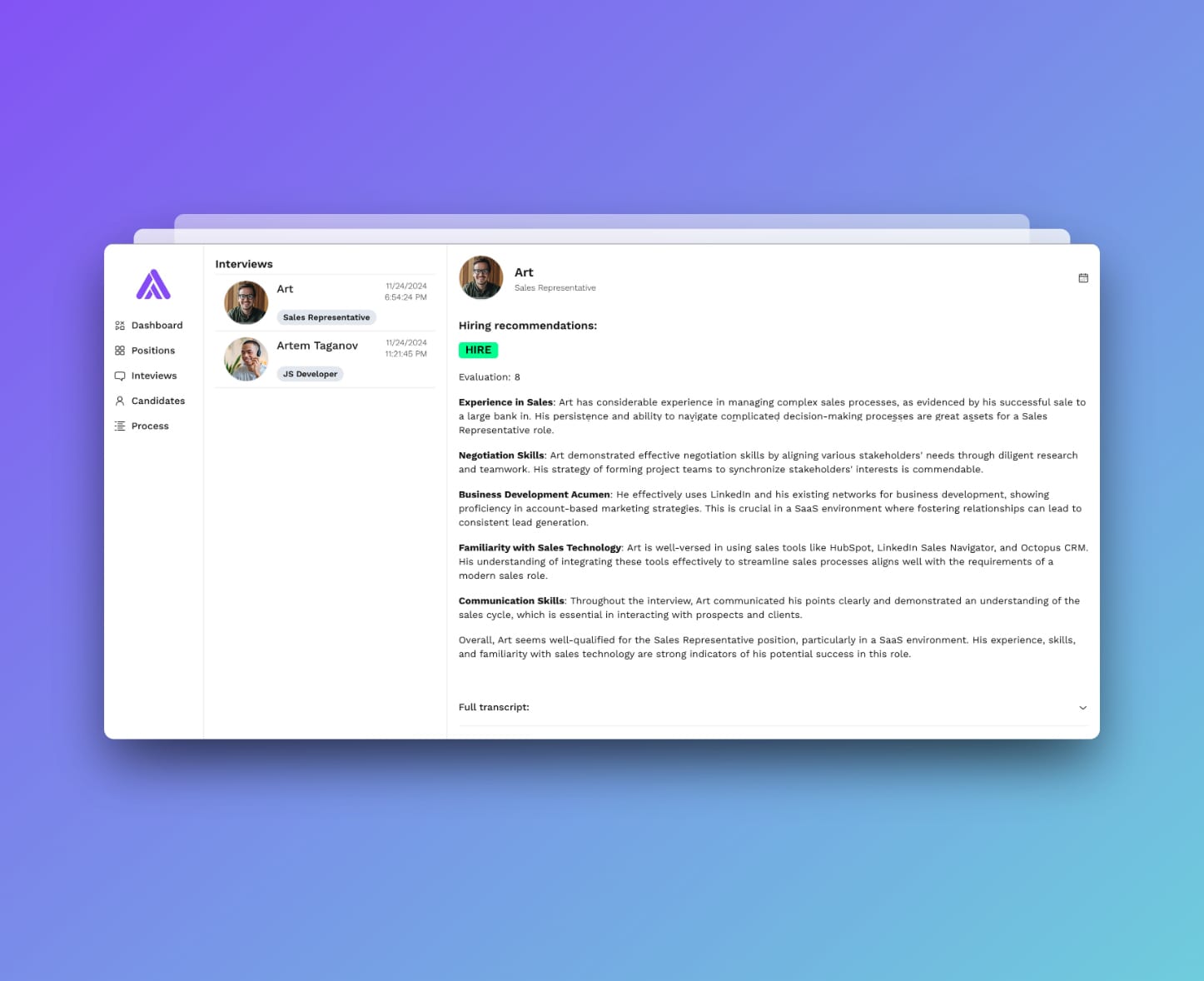How Startups Can Automate Their Recruiting in 2025

Hiring is one of the biggest challenges startups face. Unlike established companies, startups often lack dedicated HR teams, have limited budgets, and need to scale quickly. The traditional recruiting process—posting jobs, reviewing resumes, scheduling interviews, and assessing candidates—is time-consuming and inefficient.
In 2025, AI and automation can help startups streamline their hiring process, saving time, reducing costs, and improving hiring accuracy. In this post, we’ll explore the common hiring challenges startups face and how automation can solve them.
Why Hiring Is a Major Challenge for Startups
Recruiting in a startup environment is vastly different from hiring at a large corporation. Here’s why:
1. Limited Time & Resources
Startups often have small teams where every employee wears multiple hats. Founders and early team members don’t have the bandwidth to manually sift through hundreds of resumes or conduct back-to-back interviews. The hiring process can be a major distraction from core business activities.
2. Competition for Top Talent
Startups compete against tech giants and well-funded companies for skilled candidates. Without the brand recognition or salary perks of big companies, attracting top talent can be difficult. A slow or inefficient hiring process can cause startups to lose great candidates to competitors.
3. High Hiring Costs
Hiring can be expensive. From job board fees to recruiter commissions, the costs add up. A bad hire can be even more costly—estimates suggest a single bad hire can cost a company up to 30% of that employee’s annual salary. Startups need a leaner, more cost-effective way to evaluate and onboard the right candidates.
4. Unstructured & Biased Hiring Process
Many startups lack a structured hiring process. Without clear interview frameworks, hiring decisions can be inconsistent and biased. This leads to bad hires, lower retention rates, and diversity issues.
5. High Employee Turnover
Startups often operate in fast-paced environments, leading to burnout and turnover. A wrong hire not only costs money but also affects team morale and productivity. Ensuring cultural fit and long-term commitment is crucial.
6. Scaling Fast Without Breaking the Process
When a startup secures funding, hiring needs to scale rapidly. But traditional hiring processes don’t scale well. Manually reviewing resumes and scheduling interviews for dozens of candidates becomes overwhelming. Without automation, startups risk delaying product launches, missing business opportunities, and overloading their existing team.
How Automation Solves Startup Hiring Challenges
AI-driven hiring tools can streamline recruiting, allowing startups to focus on growth rather than spending weeks on manual hiring tasks.
1. Automated Job Posting & Talent Sourcing
Posting job openings on multiple platforms and manually reaching out to candidates is time-consuming. AI-powered tools can:
- Automatically post jobs on LinkedIn, Indeed, and niche job boards.
- Scan LinkedIn, GitHub, and other talent networks to find the best candidates.
- Use predictive analytics to suggest candidates based on startup needs.
✅ Saves hours of manual work and ensures a wider reach.
1. Automated Job Posting & Talent Sourcing
Posting job openings on multiple platforms and manually reaching out to candidates is time-consuming. AI-powered tools can:
- Automatically post jobs on LinkedIn, Indeed, and niche job boards.
- Scan LinkedIn, GitHub, and other talent networks to find the best candidates.
- Use predictive analytics to suggest candidates based on startup needs.
✅ Saves hours of manual work and ensures a wider reach.
2. AI-Powered Resume Screening & Candidate Matching
Sorting through resumes is one of the most time-consuming parts of hiring. AI can:
- Analyze resumes and rank candidates based on skills and experience.
- Match applicants to job descriptions using NLP (Natural Language Processing).
- Reduce bias by focusing on objective qualifications rather than personal details.
✅ Shortens the screening process from days to minutes.
3. Smart Interviewing with AI
Initial interviews are often repetitive, requiring hiring managers to ask the same screening questions over and over. AI-powered interview platforms can:
- Conduct structured technical and behavioral interviews.
- Analyze candidate responses in real-time, assessing communication skills and problem-solving ability.
- Generate instant reports with hiring recommendations.
✅ Speeds up the interview process and ensures consistent evaluation.

4. Automated Interview Scheduling
Coordinating interviews across multiple candidates and team members can lead to scheduling headaches. AI scheduling tools can:
- Sync with team calendars and suggest the best available slots.
- Allow candidates to self-schedule interviews.
- Send automated reminders and follow-ups.
✅ Eliminates back-and-forth emails and reduces interview no-shows.
5. Instant Offer Generation & Digital Onboarding
Once a candidate is selected, automation can speed up the offer and onboarding process:
- Generate offer letters and contracts instantly.
- Set up onboarding workflows with training materials and paperwork.
- Provide AI-driven chatbots to answer new hires' questions.
✅ Ensures a seamless transition from hiring to onboarding.
The Future of AI Recruiting for Startups
By 2025, AI recruiting will be even more advanced, enabling:
- AI-driven talent matching – AI will predict candidate success based on previous hiring data.
- Conversational AI – AI chatbots will handle candidate interactions, from answering FAQs to collecting interview feedback.
- Advanced behavioral analysis – AI will analyze tone, confidence, and engagement levels in video interviews.
Startups that leverage AI and automation will hire faster, reduce costs, and gain a competitive edge in the talent market.
Final Thoughts
Recruiting doesn’t have to be a bottleneck for startups. With AI-powered tools like Aiply.ai, startups can streamline interviews, automate candidate assessments, and make smarter hiring decisions—without the overhead of a large HR team.
Want to see how AI-powered hiring works?
